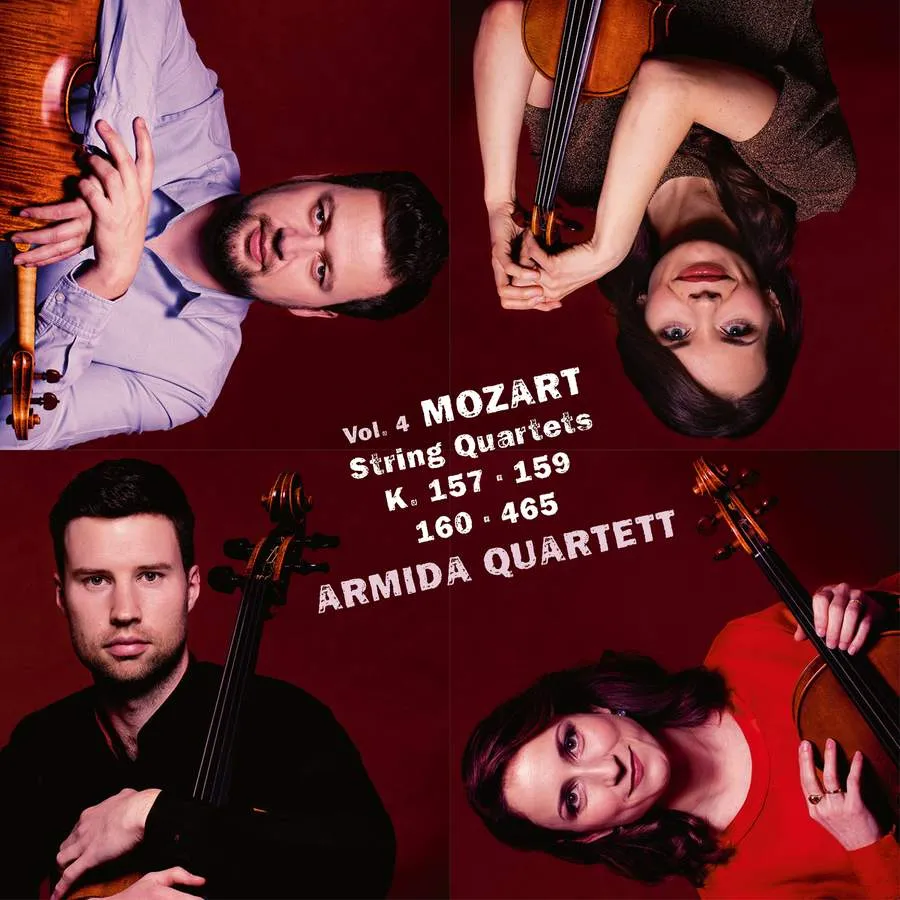
Mozart String Quartets, Vol. 4: No. 4 in C, K157; No. 6 in B flat, K159; No. 7 in E flat, K160; No. 19 in C, K465 ‘Dissonance’ Armida Quartett CAvi-music AVI 8553205 62:33 mins
In this fourth instalment in the Armida Quartett’s outstanding Mozart survey, I was initially struck by their stylistic and textural deftness in the three earlier works. The C major K157 is especially difficult to bring off convincingly, partly because of its associations with amateur ensembles making their initial foray into this area of the repertoire. In all honesty, the dancing finale is not one of the Austrian genius’s finest moments, yet even here the Armida makes the music’s over-insistent rhythmic syncopations sound inspired, allowing themselves barely perceptible injections of tempo in order to make the music go with a real swing.
In the B flat and E flat Quartets – not always the most comfortable of keys for string ensembles – the Armida’s sparkling corporate intonation and textural litheness prove especially beguiling. They also judge immaculately the fine line that exists between over-inflating Mozart’s early music and making it sound lightweight. This is partly a question of precision balancing between the various lines, so that it feels as though the music is virtually inventing itself as it goes along. Most exquisite of all is the Armida’s microfine shadings, which imbue even the most workaday phrases with a sense of wonder.
Yet it is the Olympian musical resonances of the Dissonance Quartet K465 that set the seal on this deeply immersive set of performances. Here the Armida’s linear democratising (a special word of praise for Teresa Schwamm’s exquisitely judged viola playing) pays special dividends, as the ear is gently guided by the music’s shifting sonorities. There was a time when listening to Mozart’s quartets it was difficult to avoid a sense of Dresden china clinking gently in the background – not any longer!
Julian Haylock
More reviews
Britten: Piano Concerto; Violin Concerto
JS Bach Violin Concertos, BWV 1041-1042
Sibelius: Symphony No. 2; The Oceanides